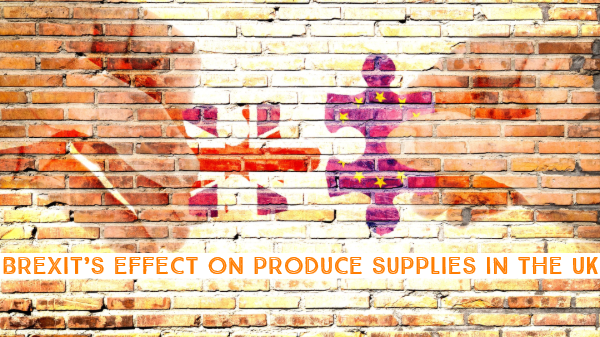After four years of Brexit talk, one might be forgiven for thinking that we have had enough of discussing the pros and cons of trade deals for British fruit and vegetable businesses.
While probably ending up with the best deal possible from Brexit, the early days of our new trading arrangements have seen the use of non-tariff barriers slow down United Kingdom agri food exports to, and imports from, Europe.
As several key supply chain players have commented: “tariff free does not always feel like tariff free when you read the fine print.”
Brexit might not be over just yet.

In the UK though, this will be a decade dominated by trade deals and their ramifications.
Future UK priorities will include the development of Free Trade Agreements with the U.S. (population of 331 million) and Oceania countries (30 million), but we have to recognise that these sort of trade deals are very much a two-way street.
The UK market, for many who are both inside and outside of Europe, is still a very attractive one. Other trade deals with the likes of Canada (38 million), Mexico (128 million) and Japan (126 million) are, in effect, almost “roll over” agreements based on what we had when still in the EU.
The UK is also keen to join the Comprehensive and Progressive Agreement for Trans-Pacific Partnership (CPTPP).
This is an FTA among Australia, Brunei, Canada, Chile, Japan, Malaysia, Mexico, Peru, New Zealand, Singapore and Vietnam. There are some potentially very interesting markets amongst these for UK horticultural exporters, but NZ and Australia will be influential on what terms we might be allowed to participate.
Ironically when the rest of the world seems to be getting together into bigger and more consolidated trade blocs, we have chosen to take a step back from one of the biggest – the EU – to then join up with others of a smaller nature, on a one by one basis.
India and China maybe remain the biggest prizes of all – but also maybe the most challenging.
And gaining tariff access to new markets is one thing. Building a market presence is another thing altogether.
Unless you are in the highly fortunate position of being in the right place at the right time (this doesn’t happen very often) building exports takes just four things – time, effort, expertise and investment.
Only the best prepared, best informed and those with a well developed export plan will eventually be successful.
The UK traditionally has been a large scale net importer with significant volumes sourced from the likes of the EU, Central America, Turkey, Egypt, Chile and South Africa and to some extent the U.S.
The U.S. has, in the past, supplied a range of top fruit, berries and citrus and has done especially well in the nut sector in recent years.
It is hard to see a situation turned around into one where we start large scale exports of fresh produce to international markets.
There could be niche opportunities for high quality produce to markets and where UK based retailers are active. Parts of the Gulf and SE Asia might foot the bill here.
It will often come down to the resolve and appetite of UK agri food packers, processors and exporters to do business in what can be demanding international markets up against the “best of the rest”.
This will include the leading players from the likes of the U.S., the Oceania countries, South Africa, Chile and Peru, to name a few.
Yet the recent announcement by the likes of Marks & Spencer (the leading high end retailer in the UK) to open online shopping activity in 46 countries around the world could be the start of the niche opportunity for horticultural producers and UK exporters that we have been waiting for.
So – welcome to the decade of trade deals, but let’s always remember, securing trade access is one thing – market presence is another thing altogether.



